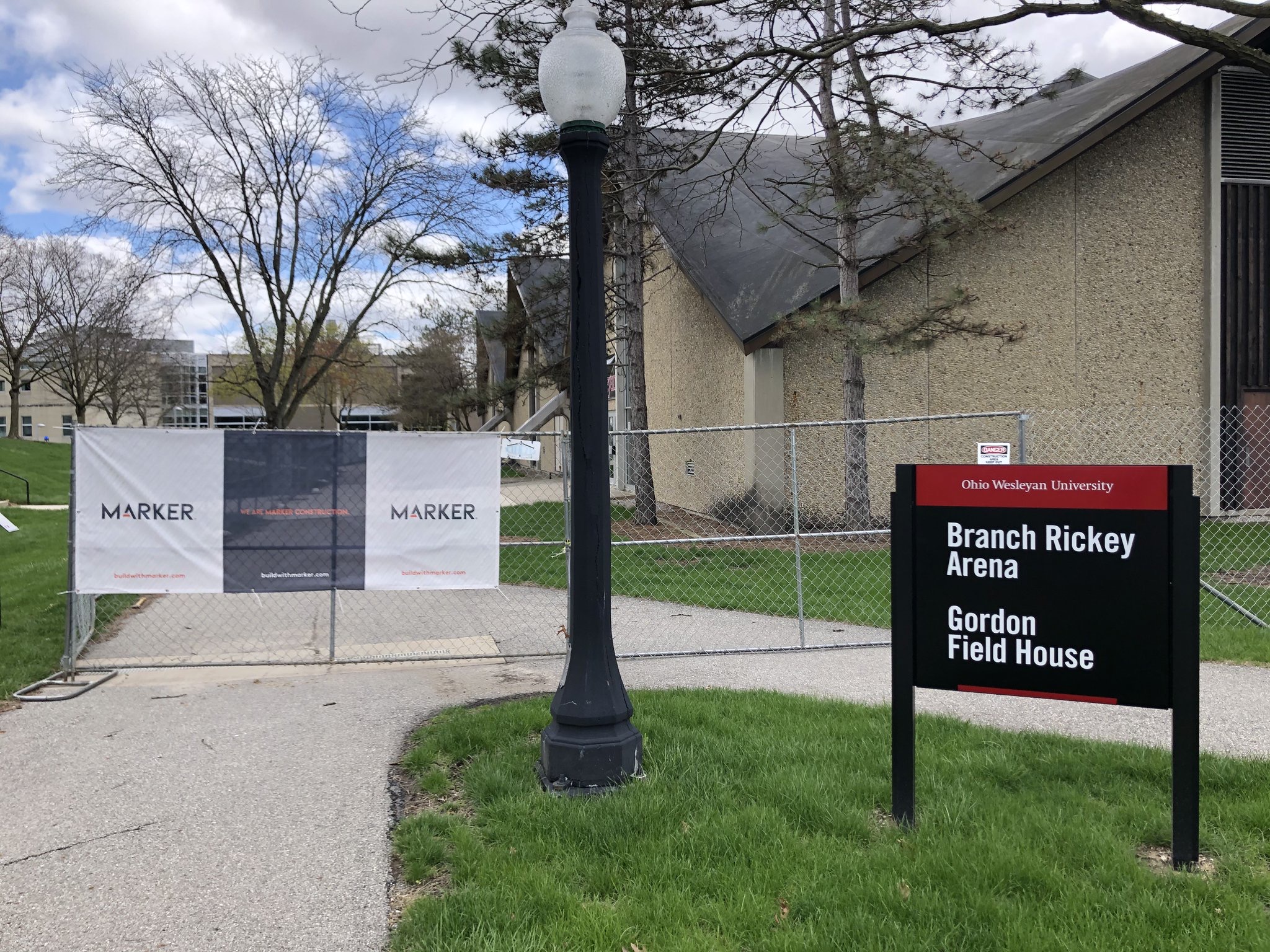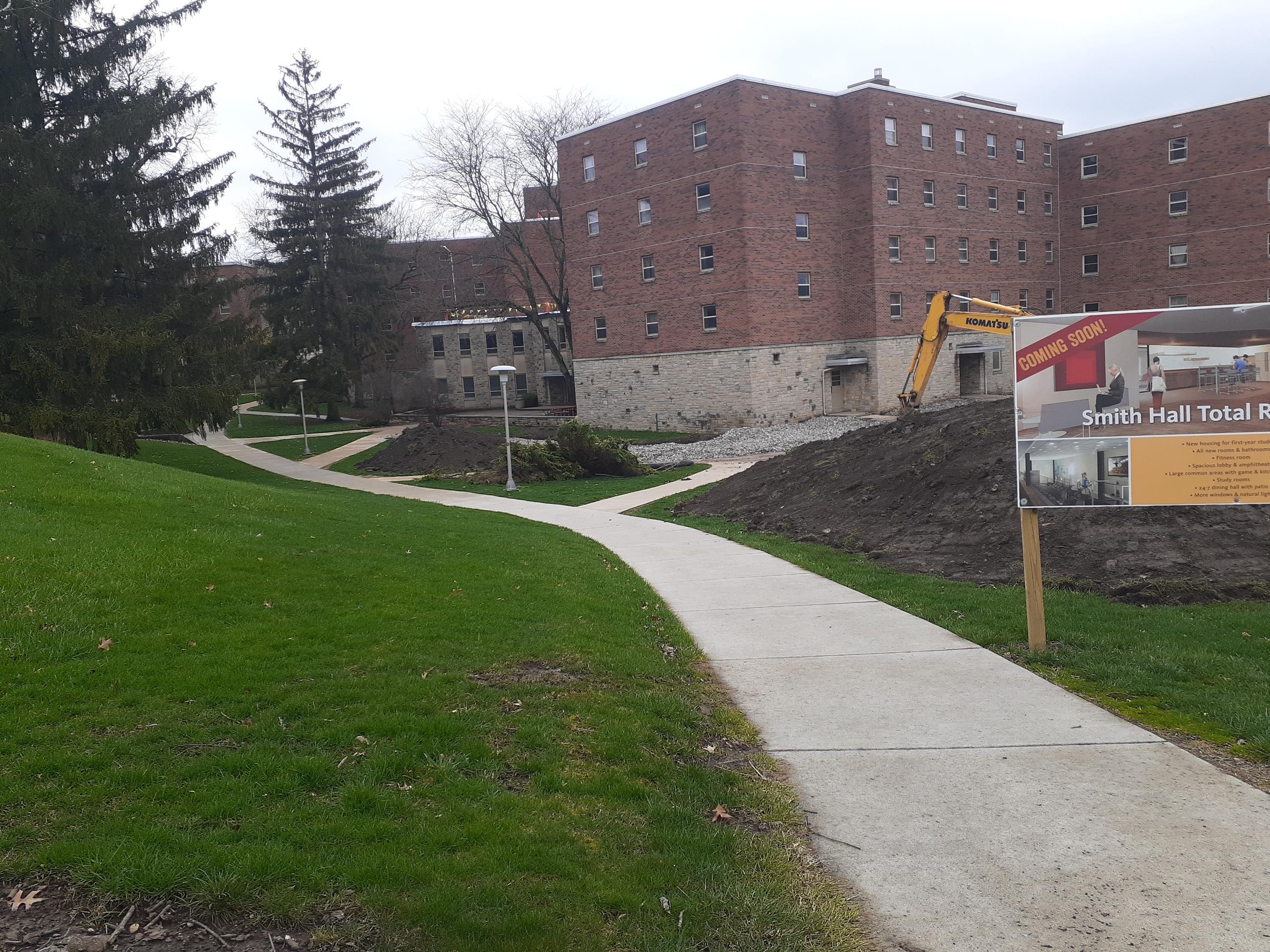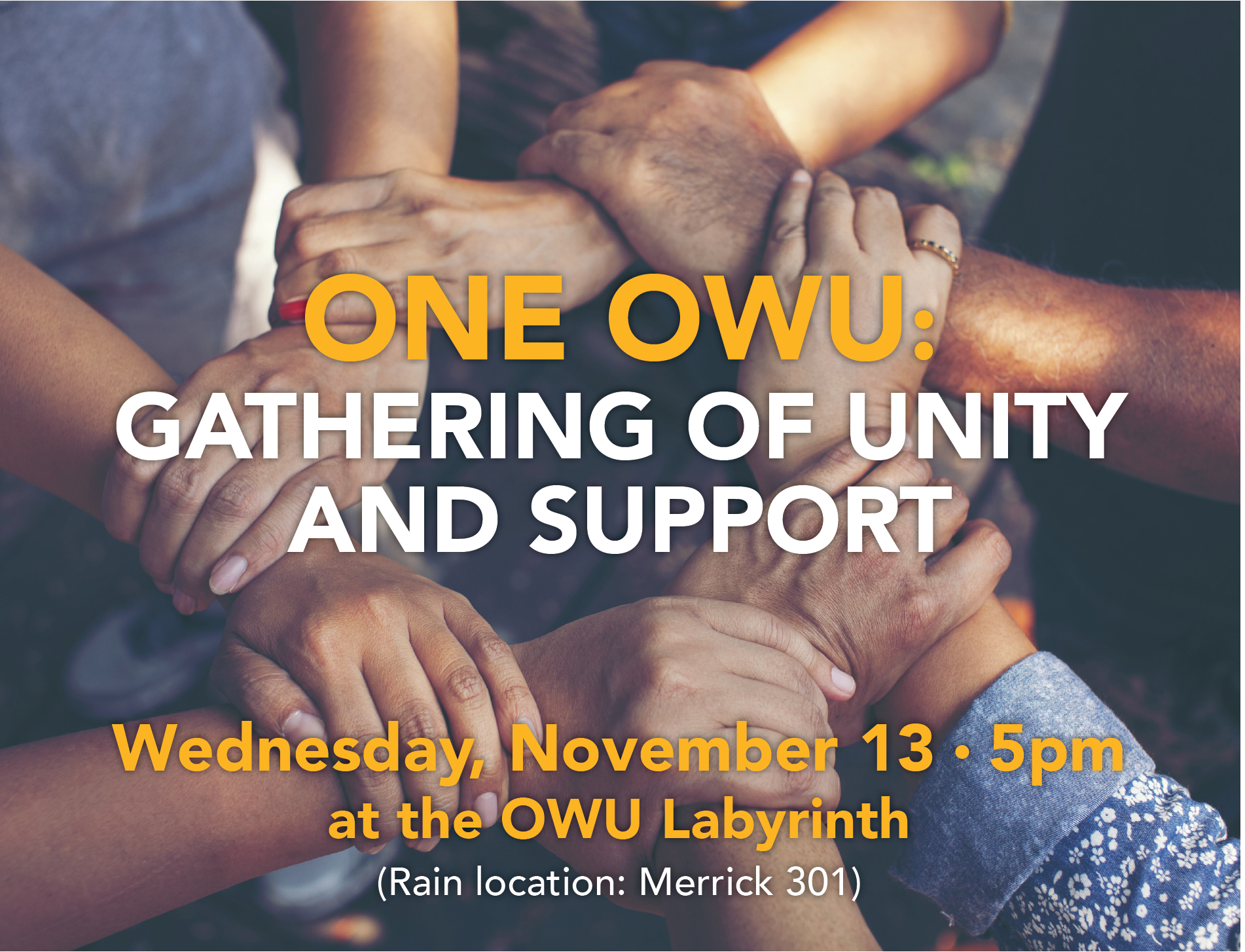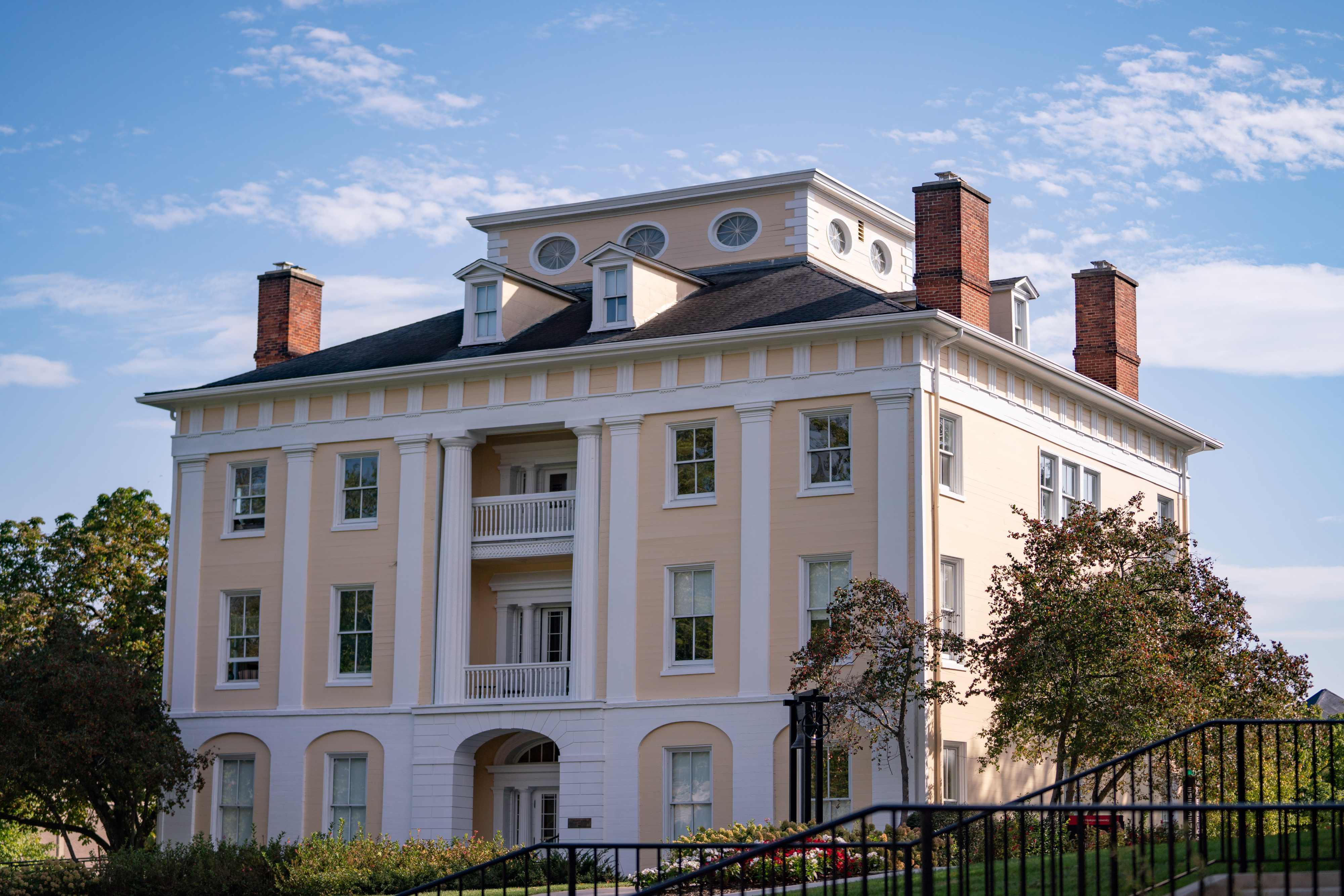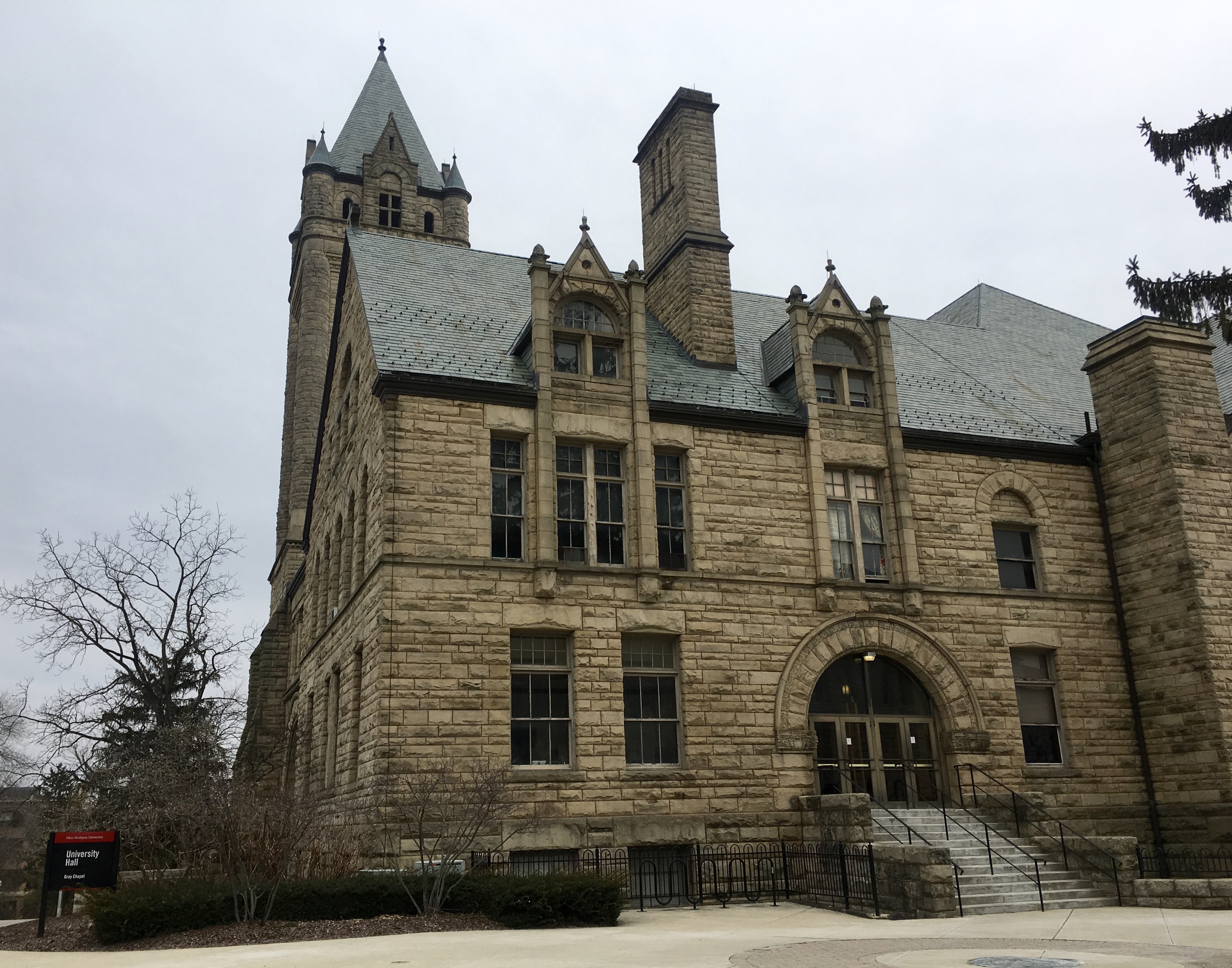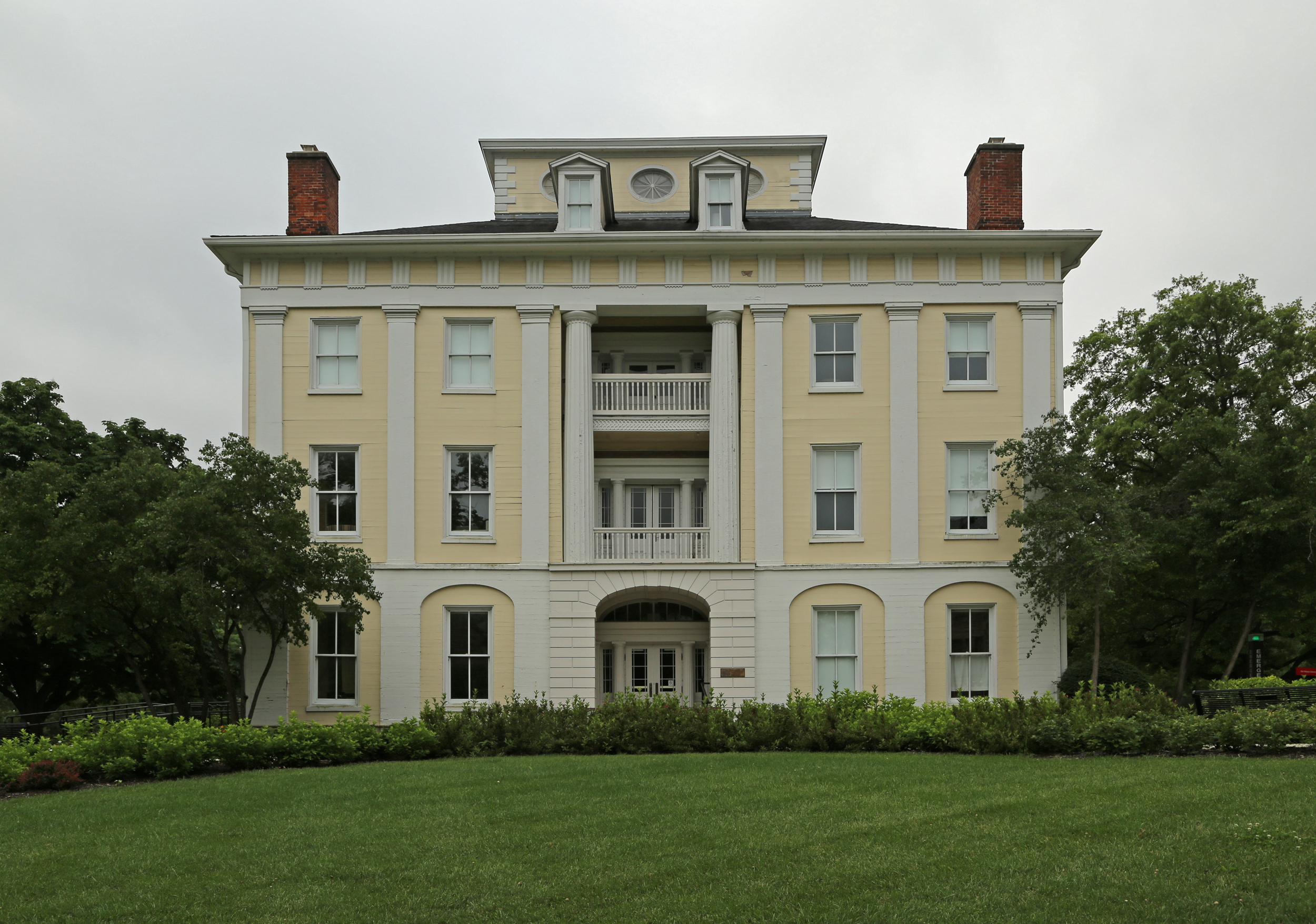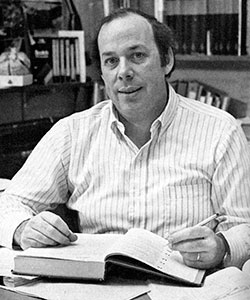Meg Edwards and Hailey de la Vara
Transcript correspondents
mmedward@owu.edu
hhdelava@owu.edu
Ohio Wesleyan’s construction and renovation plans continue to go forward despite the coronavirus pandemic, but no one, including OWU President Rock Jones, knows if students will return in the fall.
“I don’t know if we will be back on campus in the fall,” Jones said in an interview. “No one knows if we will be back on campus in the fall.”
At a time when uncertainty is a constant for everyone, Jones said he is working 12 hours a day just to keep up with the flood of emails and questions from people.
One concern is OWU’s international students and their ability to come back to campus. About 100 were enrolled this semester and close to 35 students remain on campus. But with travel restrictions, it is highly likely they may have to continue to work remotely. The university will ensure that option is available, Jones said.
“We hope they will continue to be Ohio Wesleyan students,” Jones said.
Meanwhile, the university will press ahead with projects. Construction of the senior village apartments will start at the end of the month.
“The Board of Trustees believes it is critical to move forward with this work to enhance our ability to attract and retain students in an even more competitive recruiting environment,” Jones wrote in an April 6 administrative report to faculty.
The renovation of Smith Hall will continue, too, but the university is delaying for a year the planned $11 million project to renovate 122-year old Slocum Hall.
At the end of March, OWU finished raising over $4 million to completely renovate Branch Rickey Arena, the space where men and women’s basketball teams and volleyball and wrestling teams compete.
The refurbished facility will be air conditioned and include new flooring, bleachers, scoreboards with statistics panels, lights, and a sound system. The main lobby will be redone to create an entryway that highlights current Bishops, past champions and the legacy of the building’s name sake.
The money for the work came entirely from donations from alumni, parents of students and friends of OWU. Work is scheduled to begin in May and be completed in October 2020, but construction workers are already removing bleachers, Jones said.
Renovating the arena is important not just for student athletes, but for the whole community of Delaware, which uses it for summer camps and large events, especially when air conditioning will be in place, Jones said.
Cole Hatcher, OWU’s director of Media and Community Relations, said improving a campus facility benefits all students, including prospective students.
“I think everyone will appreciate seeing the new entryway that honors current and former Bishop athletes as well as Branch Rickey himself,” Hatcher said. “The All-American Lounge will be a wonderful addition as well.”
Renovations obviously will affect athletes and Jones in an April 3 email to faculty said he was “grateful to Coach (Krista) Cobb and the student athletes who will be impacted by this removal.”
But as volleyball team members said, they don’t play for the gym, they play for the team.
That was the decision that senior Molly Jewett came to with her teammates after learning their upcoming season games will be held in the field house, while Branch Rickey Arena is undergoing renovations.
“Wherever we are, we will still be OWUVB,” she said.
Freshman Chloe Merritt said she is not worried about the renovation interrupting the season,
“Rock Jones and (athletic director) Doug Zip and others have been super helpful and have done a very great job communicating with us on a personal level about the renovation and the process with it,” Merritt said.
Columbus-based Marker, Inc. is working on much of the construction on campus, but no contract has been finalized for the arena’s renovations. Marker built the Small Living Units on Rowland Avenue and has done LEED-certified environmentally friendly projects in the past.
Parking will not be affected by the arena’s renovations, Jones said. The only visible exterior change will be the entryway honoring the story of Rickey.
Jones also said no plans exist for a reopening celebration, but the campus will come together to celebrate when the work is done, Jones said.
“Campus is a ghost town,” Jones said. “I hate no one is here. We want to bring it back to life.”
